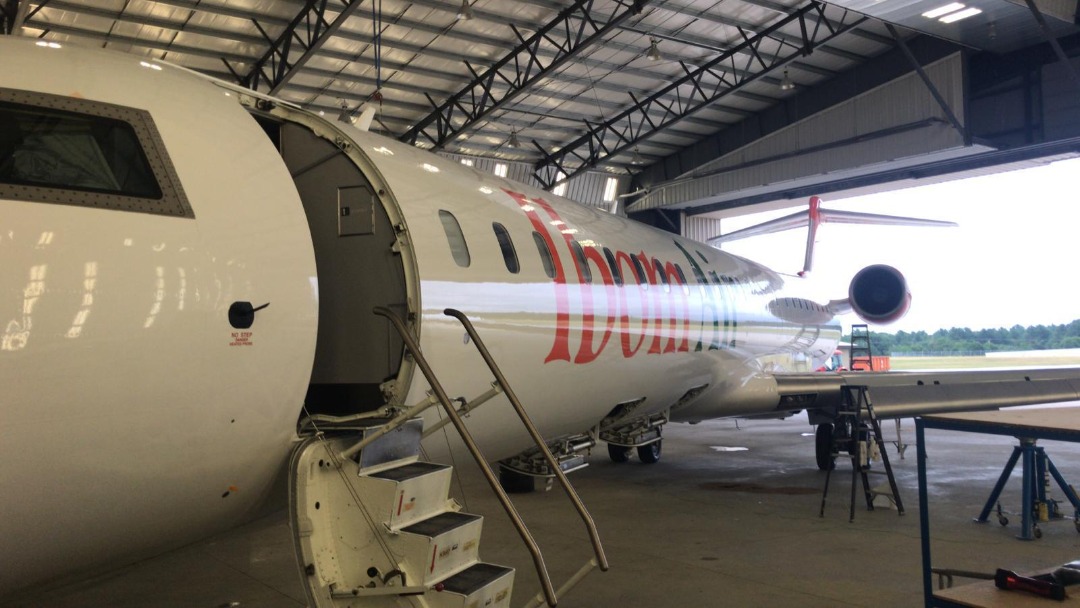‘Ibom Air MRO to reduce capital flight in aircraft maintenance’
Ibom Air has said the Maintenance, Repair and Overhaul (MRO) project being undertaken in Akwa Ibom State will help fill the gap in the African continent. According to the airline, this is part of the state government’s plan to make Ibom Airport a hub in West Africa. The Group Manager, Marketing and Communications, Ibom Air, […]

Ibom Air has said the Maintenance, Repair and Overhaul (MRO) project being undertaken in Akwa Ibom State will help fill the gap in the African continent.
According to the airline, this is part of the state government’s plan to make Ibom Airport a hub in West Africa.
The Group Manager, Marketing and Communications, Ibom Air, Mrs Aniekan Essienette, who spoke in Lagos in a chat with aviation correspondents stated that the MRO project would make Uyo the destination for aircraft maintenance.
Daily Trust reports that Nigeria spends billions of dollars annually to maintain aircraft abroad.
- Ibom Air receives first of $902m A220 aircraft order
- Reps to Tinubu: Review Oronsaye Report before implementation
Meanwhile, Ibom Air’s MRO has reached an advanced stage to provide maintenance and repair services for aircraft belonging to indigenous airlines and others in Africa.
Essienette said: “Our MRO is to fill a gap in the aviation space as we have only a few MROs in the entire African countries. The plan as at the time of set up, was to go into MRO in order to capture the market, reduce high cost of maintenance across the country, and reduce capital flights associated with maintenance.
“The next phase was then the airport and the third phase was the airline. With the new terminal, we hope to become a hub and ensure it’s in tune with our business plan of becoming a regional airline. We will be able to service not just the region and Nigeria, but the entire West African region. We intend to build a truly hub airport for the first time in Nigeria. That’s the idea.”
She stated that the free fall of the naira against the dollar in recent times had increased the airlines’ cost of operation, saying many carriers were wary of transferring the cost to passengers.
She added: “This is the dilemma that we have found ourselves in. About two weeks ago, we bought fuel at about N800, but today, it is N1,500 and the expectation is that you should not increase fares. If a bolt is loose, we don’t manufacture it here, you have to have naira, which has to wait for available dollars and until you get dollars, you will not be able to transmit it, which is a huge challenge.”
